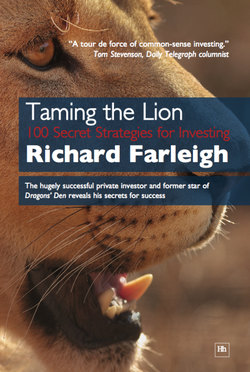Читать книгу Taming the Lion - Richard Farleigh - Страница 7
На сайте Литреса книга снята с продажи.
1. Markets 1.0 The different markets have many useful similarities
ОглавлениеAs a youngster my first ambition was to be a bushranger just like Ned Kelly. This nineteenth century outlaw was Australia’s own Robin Hood, except that he fought against police injustice wearing his bullet-proof helmet and vest made from steel. Eventually caught and sentenced to hang, his last words were “such is life”.
My ambitions improved slightly as I grew older, and in my teens I thought of being a religious minister, or of trying my luck as a professional chess player. These things faded, however, and as I finished high school in Sydney in the late 1970s, my plan was to be an economist. The little bit of economics that I had learnt had whetted my appetite. Economics is often criticised as the ‘dismal science’, and there is a joke at its expense which states that you could line up all the economists in the world and still not reach a conclusion. But I had good teachers, and one of them in particular, Peter Rolfe, showed me that economics achieved a hell of a lot by starting with some quite acceptable assumptions about human behaviour. From there, it is able to do a reasonable job with the daunting task of predicting the actions of millions of people when wages, prices, interest rates, taxes and other financial factors change. Peter is a fun and sporty person, so he was quite an evangelist for the subject.
A few years later, I had finished my degree and found myself working in the Research Department of the Reserve Bank of Australia, which is Australia’s central bank. From there, however, I made a quick career change and entered the hyper-competitive world of investment banking. I had been told that the money was good, but that you had to be able to handle the stress. I remember thinking “hmm, I’ll try to make some money, and I’ll worry about the stress later”.
My career since then has been unusual because, as a trader and investor, I have been involved with many different types of markets. Since the early 1980s I have been a derivatives trader, a bond trader, a currency trader, a business angel and a stock investor. I have worked for an investment bank, a private hedge fund and for myself, managing my own funds. I have been very lucky because I have enjoyed all of it immensely, and I have produced good returns for others and myself along the way.
The most striking and satisfying thing that I have learnt from this experience is that the different markets have many similarities. This is contrary to what many people expect. I believe that in all markets:
Any genuine opportunity needs to be based on a sound observation.
Big ideas offer big opportunities.
Prices take time to absorb information.
Prices go further than generally expected.
Prices move in trends.
Crisis situations and panic buying or selling occur from time to time.
Investing requires a sensible approach to risk management.
Analysis requires recognition of both the bullish and the bearish arguments. A checklist is very useful.
‘Experts’ are often wrong, and the media oversell how easy it is to make money.
Because of these similarities, the various investing and trading opportunities offer the same types of challenges and opportunities, and they can be approached in much the same manner. I have even found that, for example, investing in an unlisted biotech company involves some similar skills to trading euros versus the dollar.
The ability for an investor to change focus can be very useful as investment opportunities shift from one market to another. In the late 80s and early 90s there were fantastic investments offered by the big falls in interest rates in the western economies. For nearly a decade after that opportunity waned, it was the stock market which had a brilliant run. More recently, commodities have been surging.
Investors and traders who only look at one type of market can be trapped without these big opportunities. They are trying to grow flowers in the desert. Sometimes, it can be useful to move elsewhere.
Consequently the 100 Strategies are applicable to a very broad range of investments. The idea is to find the right ideas and not waste time and money trying to eke out a return from barren areas.
